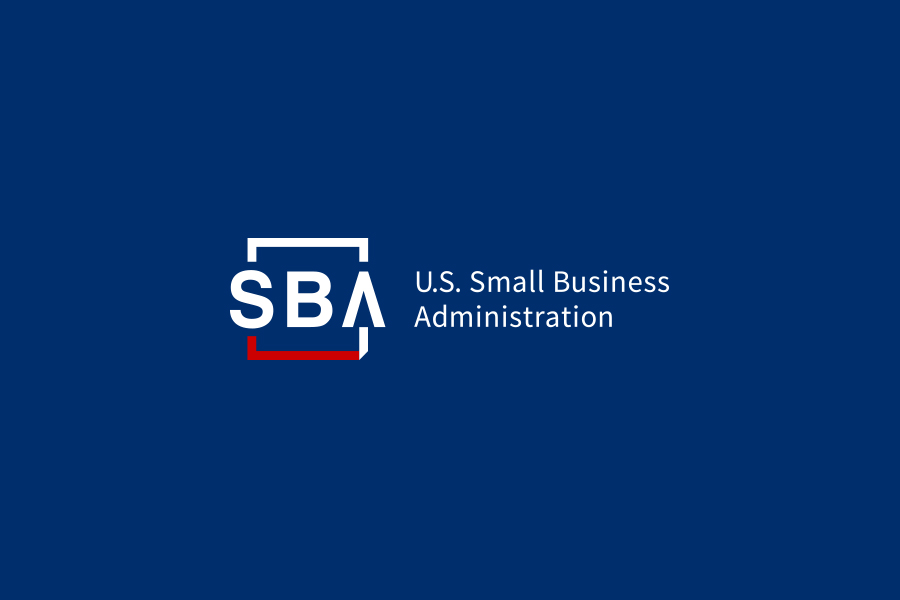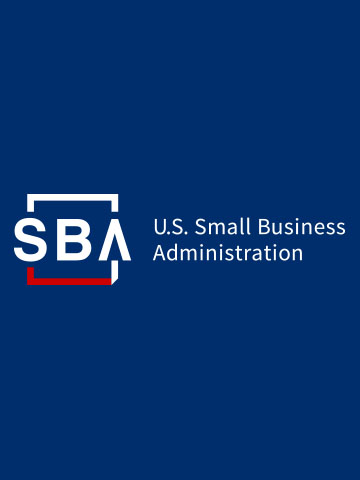What is working capital? Working capital represents the short-term liquidity and financial health of a business. Positive working capital can indicate the business is well-managed and financially stable. Working capital is the money available to meet current, short-term obligations. It is calculated by subtracting short-term liabilities from short-term assets. Short liabilities include accounts payable, salaries, taxes, and other debts/accrued expenses. Short-term assets include cash, accounts receivable, and inventory that will be converted into cash within twelve months.

Seven Reasons Why a Buyer May Expect Working Capital to be Included in the Sale Price of a Business
Oftentimes, sellers are taken by surprise when a buyer demands a specific amount of working capital to be included in the sale price of a business. In lower-middle-market valuations based off EBITDA multiples, working capital is included in the price. In main street business valuations based off SDE multiples, working capital is not included in the price. However, with a stumbling economy, more sophisticated lower-middle-market buyers are reaching down into main street businesses and applying their expectations to main street acquisitions. So, why would a buyer want to include working capital in the acquisition?
Here are seven reasons why a buyer may expect working capital to be included:
- Ensures Business Continuity
Working capital is essential for the day-to-day operations of a business. By including working capital in the sale price, the buyer ensures the business will have sufficient funds to continue its operations smoothly after the acquisition. - Creates Seamless Transition
Working capital helps create a smooth transitional period during which the buyer takes over the operations. By including working capital in the sale price, the buyer has immediate access to funds to cover initial expenses, pay suppliers and employees, handle any unexpected costs, etc. during the transition. - Avoids Additional Investments
Working capital avoids the need for the buyer to inject additional capital just to maintain the current operations of the business. By including working capital in the sale price, the buyer can avoid having to make an additional investment immediately after the acquisition. - Mitigates Risk
Working capital can indicate the business is well-managed and financially stable. By including working capital in the sale price, the buyer reduces the risk of acquiring a business that may be struggling to meet its short-term obligations. - Simplifies Negotiations
Working capital simplifies the negotiation process. By including working capital in the sale price, instead of negotiating a separate amount for working capital, both parties agree on a total purchase price that includes the estimated working capital needed to operate the business. - Avoids Disputes
Working capital can be a contentious issue in negotiations if not explicitly addressed. By including working capital in the sale price, both parties avoid potential disputes or disagreements over the specific amount of working capital at the time of the sale. - Simplifies Handing of A/R and A/P
Working capital simplifies the handling of accounts receivable (A/R) and accounts payable(A/P) after the sale. By including working capital in the sale price, A/R and A/P do not need to be allocated between the buyer and seller. The buyer can simply receive revenue and pay bills as if the sale never occurred.
It is important to note the inclusion of working capital in the sale price should be clearly defined in the purchase agreement. Both parties should agree on the methodology for calculating the working capital amount, any adjustments, and the target working capital amount at the time of the sale. Proper due diligence is crucial to ensure the working capital included in the sale price accurately reflects the needs of the business and is fair to both parties.
Sources: Bank of America and Chat GPT

Eric J. Gall, MBA, CM&AP, CBI, ABI, M&AMI
Eric is the registered broker and founder of Edison Business Advisors. Over the past 25 years, Eric has participated in many forms of business transactions closing in on $300M. He has earned 34 awards from BBF, IBBA, and M&A Source since 2010. Eric is the President of BBF Southwest Florida Region and serves on M&A Source Deal Market Committee and BBF State Board.

SBA Disaster Assistance for Businesses Affected by Hurricane Helene
In light of the devastation from Hurricane Helene, we want to provide some information that may be helpful in providing assistance to businesses that have been affected by Hurricane Helene.
For 7(a) loans that are not sold on the secondary market, Lenders may:
- Grant payment deferments of up to 6 consecutive months (No SBA notification required)
- Extend loan maturity by up to 10 years to aid in the orderly repayment of the loan (E-Tran input required)
- Change the interest rate (SBA CLSC notification required)
For 7(a) loans that are sold on the secondary market:
Payment Deferment:
- Per SBA Form 1086, “Secondary Participation Guaranty Agreement,” Lenders may grant a one-time unilateral deferment of up to 90 days without requiring prior investor consent
- Lender must notify the investor through the Fiscal Transfer Agent (FTA) (FTA@sba.gov) of the unilateral deferment and report the affected loan on SBA Form 1502
- Lenders may make additional loan deferments only with prior investor consent
Any payment modifications, changes to the loan amount, interest rate changes, extensions of maturity, and deferments over 90 days (cumulative):
- Must have investor approval
- Should be done on a case-by-case basis
- Lenders should send these servicing requests directly to the FTA, with subsequent notification and evidence of investor approval forwarded to the appropriate CLSC
References for the above actions:
- See 13 CFR § 120.530-536, SBA Form 1086, SOP 50 57, and the Servicing and Liquidation Actions 7(a) Lender Matrix
Please help us spread the message about SBA Disaster Assistance:
SBA is in the process of putting together a communication outreach for Hurricane Helene disaster survivors.
Meanwhile, please help us spread the word…
- Hurricane Helene survivors may apply for SBA disaster assistance either on SBA’s webpage for assistance for survivors of Hurricane Helene, or they may apply directly through the My SBA Loan Portal.
- Both physical damage disaster loans and economic injury disaster loans are available.
- Note: the economic injury disaster loans (EIDL) are regular disaster loans, not COVID EIDL loans.
- Affected businesses may receive more than one loan for separate disasters, i.e., a business could potentially receive a physical disaster loan and an EIDL loan for Hurricane Helene and a physical disaster loan for Hurricane Debby.
Please call 800-659-2955 (TTY 711) with questions. Once a business has applied for a loan, the applicant may ask questions through the My SBA Portal.
When considering new 7(a) loan applications:
- Consistent with the regulation at 13 CFR 120.150, the applicant (including an Operating Company) must be creditworthy. Loans must be so sound as to reasonably assure repayment.
- Lenders and CDCs must use appropriate and prudent generally acceptable commercial credit analysis processes and procedures consistent with those used for their similarly-sized, non-SBA guaranteed commercial loans. Lenders, CDCs, and SBA may use a business credit scoring model.
- When approving direct or guaranteed loans, Lenders, CDCs, and SBA may consider (as applicable) the following criteria: credit score or credit history of the applicant (and the Operating Company, if applicable), its Associates and any guarantors; the earnings or cashflow of applicant; or where applicable any equity or collateral of the applicant.
Subordination of SBA Disaster loans:
For SBA Lenders requesting subordination of a lien securing an existing SBA COVID-EIDL or Disaster Loan:
- To request a lien subordination: CovidEIDLServicing@sba.gov
- COVID-19 EIDL Customer Service will provide the Application for SBA Consent form for the subordination request.
Upcoming 7(a) Connect Quarterly Update on Oct. 8th:
Please join us on Tuesday, Oct. 8th at 3:00 Eastern using this link. We will have SBA subject matter experts on all of the above to discuss this and other information and to answer questions.

Ginger Allen
Chief, 7(a) Loan Policy Division
Office of Financial Assistance
U.S. Small Business Administration

Exploring Industry Roll-Ups: Opportunities and Considerations for Business Sellers
In the current market of business sales and acquisitions, private equity groups (PEGs) are some of the most active buyers of mid-market companies. They are placing a growing emphasis on what is commonly known as “industry roll-ups” – a strategic merging of multiple companies within the same market or vertical.
This has been a growing trend throughout the state since the beginning of this year and could present some big opportunities for Florida business owners looking to sell. At the same time, sellers need to be well informed about how roll-ups work, so they can properly protect themselves during the sale process.
Understanding Industry Roll-Ups
Industry roll-ups involve a buyer, often a private equity group or another financial entity, acquiring several companies within a specific industry, usually one approaching maturity. These acquired entities are then integrated or “rolled up” into a single overarching company.
According to Investopedia, private equity firms use roll-up mergers to streamline competition in crowded or fragmented markets and to combine companies with complementary capabilities into a comprehensive business entity.
Buyers like industry roll-ups because they help them achieve substantial, rapid growth and increase market presence in a relatively short period of time. Investors who acquire businesses with the roll-up method can consolidate back-office functions, allowing them to increase overall revenue without increasing overhead. This helps increase the per-company return on investment much more than if a business was purchased on its own.
Benefits of Industry Roll-Ups for Business Sellers
Selling a business as part of an industry roll-up can offer sellers advantages not typically found in conventional sales processes. The competitive dynamics of multiple PEGs pursuing roll-up strategies in the same industry can drive up the selling price due to heightened buyer interest. More buyers lead to increased leverage for the seller.
Even more importantly, roll-ups give sellers the opportunity to realize additional profits by opting to “roll equity” in the transaction. In a typical roll-up scenario, sellers receive a combination of cash and shares in the holding company in exchange for their ownership stakes in the acquired companies. This arrangement can potentially yield substantial returns in the long term.
To clarify the concept of rolling equity, here is an example. Instead of selling your company for 100% cash, you decide to receive 75% of the value in cash, then roll 25% of the value in the roll-up. Five years later, after more companies have been added to the roll-up, the combined company sells for a lot more money, and you, as one of the individual sellers, can cash out.
Considerations When Selling a Business
While industry roll-ups present enticing opportunities, sellers must exercise caution. Unlike conventional sales, where buyers typically drive the due diligence process, sellers must also scrutinize the buyer’s capability to execute successful acquisitions and ensure post-purchase earnings growth.
As a seller, it is important that you are comfortable with the buyer’s strategy and track record in executing roll-ups. Some key items to ask about include the buyer’s experience in the industry, their past roll-up endeavors, integration plans for acquired companies, and your continuing role within the new entity. Make sure you gain an understanding of how many deals the buyer has executed and the value those deals have created. With respect to the current roll-up, ask about the number of companies that are included and specifically which ones.
Navigating the complexities of industry roll-ups requires the involvement of a seasoned M&A professional, such as a business broker. A broker can navigate you through the intricacies and potential risks associated with roll-up transactions. Do not underscore the necessity of expert guidance in this type of transaction. If you are not an expert on roll-ups a small mistake can prove to be very costly. Choosing the right professional to guide you through the process can significantly improve the chances of a successful and lucrative transaction.
If you are considering the sale of your business in the near future, or even within the next few years, it’s important to understand what your options are, and what type of buyers your business may appeal to. Unless you’ve sold multiple companies, getting a holistic picture of the entire process can be overwhelming.

Jeff Kohn
Jeff is the registered sales agent with Corporate Investment Business Brokerage in SWFL. He is an active member of the Florida Association of Business Brokers (BBF) and the International Association of Business Brokers (IBBA). Jeff serves on the board of BBF Southwest Florida Region as Secretary on the board.

Chair’s Letter
As I write this letter, I am sitting waiting for Hurricane Milton to descend upon Florida. Wherever it lands, we are going to have many BBF members that will be seriously affected. We have already had several BBF members that have had to deal with Hurricane Debby and Hurricane Helene already in 2024. I am keeping all our members in my prayers and hope everyone suffered minimal damage. Please reach out if there is anything we can do for you.
District election results are completed and congratulations to our District Leaders for 2025. They are as follows:
- NORTH FLORIDA – President Bianca Evans, VP Anthony Rigney, Treasurer Tom McLenahan, Secretary Tim Levandowski, Past President Patrick Lange, At-Large Connie Pendleton.
- CENTRAL FLORIDA – President Brea Reger, VP Jason Godwin, Treasurer Herb Stewartson, Secretary Emily Herbert, Past President Paul McNally, At-Large Joe Shemansky.
- SOUTH FLORIDA – President Ryan Cave, VP Russell Cohen, Treasurer Andy Cagnetta, Secretary John Bucher, Past President Roberta Caputo, At-Large Mark Habib.
- SOUTHWEST FLORIDA – President Eric Gall, VP Terry Wolfe, Treasurer Janet Badalow, Secretary Jeff Kohn, At-Large Joseph Alter, At-Large Davis Whitcomb.
- TAMPA – President Brian Stephens, VP Richard Green, Treasurer Marlene Sundquist Behlman, Secretary Dan Gore, At-Large Pete Harrison, At-Large Tom Brubaker.
I am happy to announce your Board of Directors has negotiated and come to an agreement for BBF to continue to purchase for the next 3 years (through 2027) membership to IBBA for all active and current members of BBF. This is a great opportunity for all our members to take advantage of the fantastic educational opportunities IBBA has to offer along with all the free tools that are available. Please take advantage of all the good things that IBBA has to offer.

Paul McNally
Chairman, Business Brokers of Florida®

On the Road to Success: Attributes Shared by Deals That Reach the Closing Table
Embarking on a business deal is a complex journey that demands strategic planning, negotiation skills, and a shared commitment to success. After years of experience in business sales, I’ve been able to highlight the key attributes shared by successful deals that navigate the twists and turns of negotiations and ultimately reach the closing table.
Clear Communication
Successful deals are underpinned by clear and open communication, not only between brokers and their customers, but between brokers, and after due diligence is concluded, between buyers and sellers themselves. Both parties must articulate their expectations, concerns, and priorities transparently. Effective communication fosters understanding and trust, laying a strong foundation for the deal’s success.
Mutual Understanding of Value
Before reaching the closing table, both buyers and sellers must have a mutual understanding of the value of the business. This involves a realistic analysis of financials, assets, and market conditions. Aligning on value minimizes surprises and promotes a smoother negotiation process. It also keeps all parties invested in seeing the deal through when an inevitable bump in the road comes along during the process.
Thorough Due Diligence
Successful deals share the attribute of thorough due diligence. Buyers delve into the details of financials, contracts, and operations to gain a comprehensive understanding of the business. Sellers, in turn, provide transparent and detailed information to instill confidence in the buyer, in a timely manner. As a broker, I’ve found that monitoring the due diligence process and helping buyers and sellers keep track of all documents requested and received, aids the parties in a smoother due diligence process as well, which in turn, leads to clearing the due diligence contingency.
Flexibility and Adaptability
Flexibility is a hallmark of successful deals. Both buyers and sellers should be willing to adapt to changing circumstances, adjust expectations, and explore creative solutions when issues do arise. A flexible approach allows the parties to overcome challenges and find common ground. This attitude keeps deals moving forward toward the closing table.
Negotiation Expertise
Successful deals are marked by effective negotiation skills on both sides. Buyers and sellers who approach negotiations with a collaborative mindset, a willingness to compromise on non-essential points, and an understanding of each other’s needs contribute to a positive negotiating environment. Brokers or buyers/sellers who take a hard nose approach to negotiations most often never win in the long run. Their inflexibility cultivates mistrust and distance from the other side of the deal, which ultimately will not work in their favor.
Professional Guidance
Engaging professional advisors, such as business brokers, attorneys, and accountants, is a shared attribute of successful deals. These experts provide guidance, navigate legal complexities, and ensure that the deal gets done right. Their involvement adds a layer of professionalism and expertise.
Focus on Long-Term Vision
Both buyers and sellers with a focus on the long-term vision contribute to successful deals. Rather than fixating on immediate gains, parties prioritize the sustainable success of the business post-acquisition. This shared vision fosters collaboration and commitment throughout the deal process. In most cases, the seller wants their business to continue to thrive after the sale, and the buyer wants to be successful with their new business, so keeping everyone’s eyes on the prize is the key.
Resolution of Contingencies
Successful deals involve the resolution of contingencies in a timely and efficient manner. Buyers and sellers with their brokers need to work together to address any potential obstacles, whether related to financing, contracts, or other critical aspects. Proactively resolving contingencies prevents delays and builds confidence.
Trust and Relationship Building
Trust is a vital component of successful deals. Building a positive relationship between buyers and sellers enhances trust and fosters a collaborative atmosphere. Parties who prioritize relationship building are more likely to overcome challenges and work together towards a successful closing. Brokers are there to guide the deal and to provide a much-needed buffer during negotiations, but encouraging trust-building between the parties is important too.
Commitment to Win-Win Outcome
By far, the most successful deals are characterized by a commitment to a win-win outcome. Both buyers and sellers recognize that a mutually beneficial agreement, where both parties achieve their goals, is the ultimate marker of success. This collaborative mindset paves the way for a positive closing experience. As brokers, we should always strive to foster a win-win scenario, rather than purely focus on a one-sided deal, as those often go sideways.
In the realm of business deals, success is not solely defined by reaching the closing table but by the attributes that underpin the journey. Clear communication, mutual understanding, thorough due diligence, and a commitment to a win-win outcome are shared attributes that distinguish deals that stand the test of negotiations and ultimately reach a successful conclusion. As buyers and sellers navigate the complexities of deal-making, embracing these attributes enhances the likelihood of a positive and enduring business transaction.

